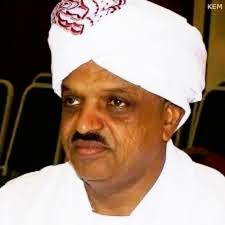US Sanctions: Their Impact on States and Political Figures (1-2)

Dr. Karrar Al-Tuhami
Years ago, during Trump’s first term, the United States placed Lebanese politician Gebran Bassil on its sanctions list for seemingly standard reasons. The intricate web of US sanctions—spanning the Office of Foreign Assets Control (OFAC), the Department of Justice, the State Department, or congressional committees—allows any of these entities to play the sanctions card if the targeted individual refuses to bow to pressure or comply with their proposed solutions to ongoing problems.
When US pressure groups or government institutions feel that you are not yielding to their decisions or aligning with their allies, they can always find a justification to place you on the sanctions list. Thousands of political and executive leaders from various countries are included on this list. But has this unilateral action impacted their roles or lives in their respective nations? In most cases, the answer is no.
Take Gebran Bassil as an example. He is the leader of the Free Patriotic Movement, a prominent Christian political party in Lebanon and a staunch rival of the historic Kataeb Party. The US State Department accused him of corruption, a claim that served as a smokescreen. The real reason was his defiance and opposition to US-Israeli plans in the region and his domestic alliances.
In his first statement after the sanctions were announced, Bassil told his party’s supporters, “Neither the sanctions frightened me nor did the promises tempt me. I will not save myself at Lebanon’s expense.” This was a reference to US attempts to pressure him into making concessions regarding border demarcation with Israel and reevaluating his political alliances, which Washington disapproved of, in exchange for unspecified incentives involving financial and political leverage.
Ironically, the sanctions increased Bassil’s popularity and benefited the Free Patriotic Movement. In the first elections after his inclusion on the OFAC sanctions list (commonly known as SDN), the party outperformed other Christian blocs and became a significant player in Lebanese politics.
The US sanctions continued haphazardly, targeting several Lebanese officials and political figures, including Ali Hassan Khalil, a former finance minister and senior adviser to Speaker Nabih Berri (a Shia Muslim), and Youssef Fenianos, a former public works and transportation minister affiliated with the Marada Movement led by Suleiman Frangieh (a Christian). Despite these sanctions, all of them won elections with significant results, and their popularity soared.
When reviewing the SDN list, one finds a collection of prominent political leaders, heads of state, and party leaders who came to power through popular elections. These include figures like Nicolás Maduro, Vladimir Putin, and party leaders with constitutional significance in their countries, such as Gebran Bassil, Youssef Fenianos, and Ali Hassan Khalil. The list also includes numerous political activists who have passed away but remain on the US sanctions list, such as Nayef Hawatmeh, Ahmed Jibril, and Muhammad Hussein Fadlallah. This peculiar and baffling list contains thousands of individuals sanctioned by the US but respected and supported by their communities.
Many political experts in the US debate the effectiveness of imposing sanctions on foreign states and individuals. Sanctions, which have been employed for over a century in various forms and levels, have faced growing criticism. A political school advocating for “positive engagement” instead of sanctions argues that US sanctions are often ineffective and yield mixed results. While sanctions have succeeded in achieving strategic objectives in some cases, they have frequently backfired, producing unintended consequences and failing to harm their intended targets. They have become little more than hollow gestures.
Source: “Sudanese Echoes”



